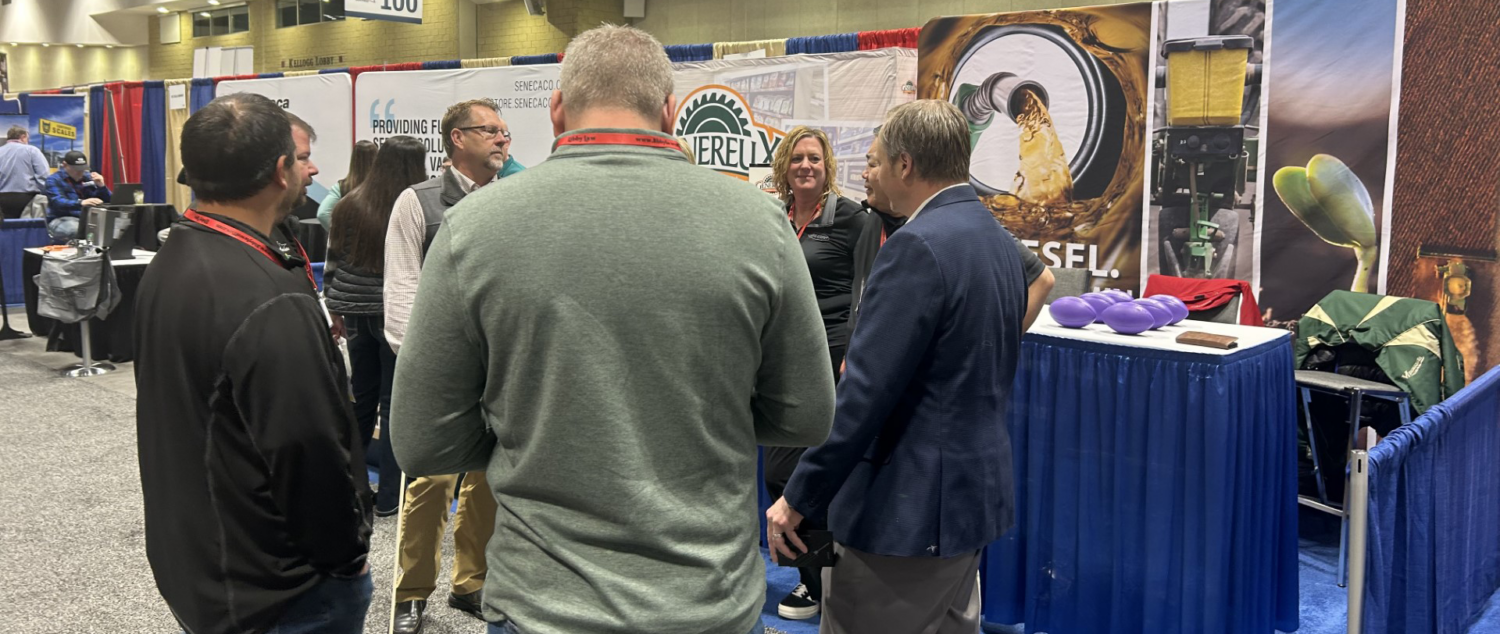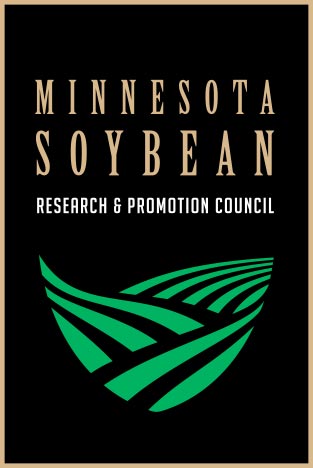Building biodiesel: SFY reunion highlights biodiesel’s big accomplishments
Building biodiesel: SFY reunion highlights biodiesel’s big accomplishments

When biodiesel first entered Minnesota’s marketplace in 2005 after the state enacted a 2% (B2) biodiesel law and then moved to B5 in 2009, the end users had a lot of questions about the product. Is it safe? Is it viable? How does it impact them? The Minnesota Soybean Research & Promotion Council (MSR&PC) had the answer: See for Yourself.
The See For Yourself (SFY) program is a nationally recognized program that allows farmers, diesel technicians and fuel distributors the chance to see firsthand how soybean checkoff dollars are invested, while evaluating the process. The purpose of the program is for participants to learn more about biodiesel, evaluate checkoff investments and share their experiences back home.
As part of the SFY program, MSR&PC and trip organizing partner MEG Corp, a fuel consulting company, have brought those farmers, diesel technicians and fuel distributors to the annual Biodiesel Conference (now known as the Clean Fuels Conference), where they can see for themselves the advancements in the biofuels industry and get down to the nitty-gritty on how it works.
“When the biodiesel mandate first began, there were some folks who had some bad experiences or maybe had heard negative things towards biodiesel,” said Lisa Pedderson, MEG Corp’s director of operations, “but we were able to bring them along on these SFY trips and show them it was safe and beneficial product.”
A lot has changed since the early days of biodiesel and SFY trips. The economic, environmental and engine benefits are more widely known and appreciated. In 2018, Minnesota became the first state to move to B20; now, fleets across the country are even making the move to B100. Taking advantage of an opportunity to reconvene and reconnect with past SFY participants, MEG Corp and MSR&PC hosted a SFY reunion prior to the Upper Midwest Convenience Store and Energy Conference on April 15 in St. Paul.
“A lot of learning has happened over the years. We’ve been able to educate people on how to properly handle it, store it, and just address and mitigate those problems that occurred since the first days of biodiesel,” said Mike Youngerberg, MSR&PC senior director of product development and commercialization. “The fuel industry folks who have participated in the SFY trips and Clean Fuels Conference have really benefited and have now become advocates themselves for biodiesel.”
MEG Corp has played a significant role and pivotal partner alongside MSR&PC in the biodiesel education process. They’ve operated the Biodiesel Hotline to address issues that technicians or farmers may be having with their fuel, they’ve provided fuel testing in their laboratory and they’ve offered training for current and future technicians.
“We work with the 12 schools across Minnesota that offer a diesel mechanic course to provide training so that the next generation of mechanics can better understand diesel and biodiesel, and how those two work together,” Pedderson said. “Now when they graduate and go into the workforce, they are doing so with a very pro-biodiesel mindset.”
Beaver Creek farmer Jim Willers has participated in most SFY trips in various capacities, from a policy side during his stint with the Minnesota Soybean Growers Association, and from his current research and promotion perspective with MSR&PC and from an industry perspective with the Minnesota Soybean Processors. He’s seen for himself the evolution of the biodiesel industry.
“When I first got involved with Minnesota Soybean in the late ‘90s, we had tanks upon tanks of soybean oil in storage and we didn’t really have a good use for it. Then biodiesel came along and now those tanks sit empty,” Willers said. “Now, trucks are waiting in line for the next drop of oil to come out of the processing plant.”
Looking toward the next 15 years of SFY, there is a lot to be excited about, as the messaging continues to evolve from building trust in biodiesel to how biodiesel will play a role in the next wave of biofuels.
“Biodiesel adds a lot to the other renewable fuels that are entering the market, such as renewable diesel and sustainable aviation fuel. It provides the lubricity and oxygen that can really benefit other renewable fuels,” Youngerberg said. “We also continue to expand B100 into the marketplace as the industry looks to lower their carbon footprint. The future looks bright!”



